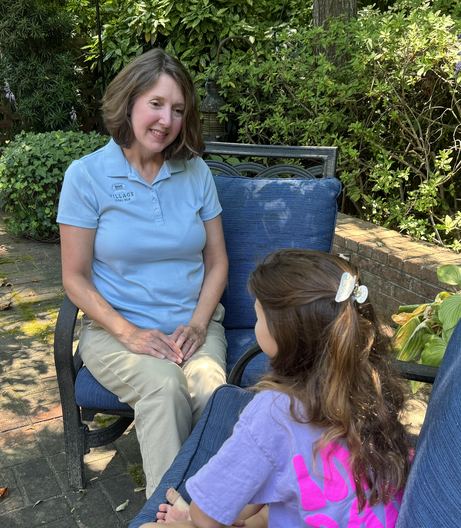Family Court
Supporting children through challenging family court situations.

Compassionate Care
Family matters involving children require compassionate care and knowledgeable legal support. Attorney Andrea Moore prioritizes the well-being of the child and supports healthy family dynamics when serving as a Guardian ad Litem in family court cases.

Andrea Moore
Attorney & Co-Founder
Andrea Moore is an advocate for children and families. A 1999 graduate of the University of South Carolina School of Law, she practiced in a wide range of fields on both sides of the bar before finding her calling in child advocacy work. In 2019, she and partner Suzy Cole founded Village Legal Hub, LLC to provide legal services to children and charities.
Andrea is not able to be “hired” by a party. She must be appointed by the Court, and her fees are set by the Court at the time of appointment.
What is a Guardian ad Litem?
A Guardian ad Litem is appointed in Family Court cases to investigate a situation on behalf of the Court and to advocate for the best interests of the child or children involved. In some situations, a Guardian ad Litem is required by South Carolina statute, such as adoptions or paternity cases or where a parent wants to change a child’s name. In contested custody or visitation cases, a Guardian ad Litem may be appointed if the judge believes additional information is needed, especially in situations where the parties have very different versions of events.
What can I expect?
If Andrea is appointed Guardian ad Litem for your child or children, she will begin by meeting with you to discuss your concerns. She will visit with you and your child, usually in your home, and will collect records and speak to witnesses as required by your particular situation.
Every case is different.
In some situations school or medical records may be relevant to determining disputed issues, in some situations, friends and family members may have important information to share. The Guardian ad Litem’s goal in each case is to determine the true facts of a situation and to provide the Court with the information needed to make good decisions for a child.
Depending upon the age of the child, Andrea will also speak privately with the child, usually on more than one occasion, to learn the child’s concerns and wishes. She believes very strongly that no child should ever be asked to choose between his parents and so she will never ask a child who he wants to live with. Instead, she will discuss the child’s activities, interests, relationship with various family members, and likes and dislikes about the current custody schedule. The goal of these conversations is to understand the child’s feelings and give him a voice in decisions that impact him, without putting him in the middle of his parents’ conflict.



